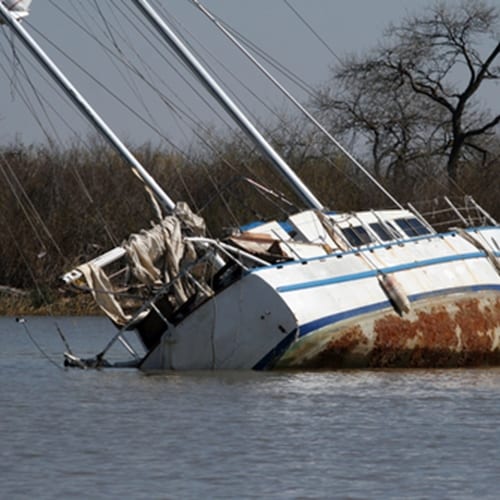While it's certainly terrifying to imagine your boat capsizing in the middle of the ocean or another large body of water, it's essential to be adequately prepared for this kind of incident and know what you need to if you find yourself in such a situation.
Recently, Global News, a Canadian media outlet, pulled together advice and tips from the U.S. Coast Guard as well as "Boating" and "Gulf Coast Fisherman" magazines for how to react in the event that your watercraft becomes damaged or sinks. It's a good idea to familiarize yourself with the following suggestions, keeping in mind that it's better to be safe than sorry:
Remain near your boat – Since rescuers often search for people via helicopter, it can be difficult to pinpoint survivors from afar. It's easier for officials to spot your vessel since it's much bigger, so unless the watercraft is heading into danger, try not to venture too far away from it.
Stay warm and dry – While this can be a challenge, you may be able to climb onto a part of the boat that isn't submerged. If you are stuck in the water, keep your clothes – a common misperception is that stripping away layers will help you stay afloat, but this isn't the case. Your shirt and pants will conserve body heat, which you'll need.
Wear your life jacket – According to the Coast Guard, these flotation devices could have saved the lives of 80 percent of boating fatality victims. During an emergency, you might not be able to easily access a life jacket, so it's best to just wear one any time you are aboard a vessel.
There are a number of risks that watercraft operators face when they take their boats out on the water. With this in mind, it's a good idea for individuals and organizations to work with a marine insurance agency to gain access to the highest-rated providers in the industry and ensure that they are covered in the case of a maritime accident.

